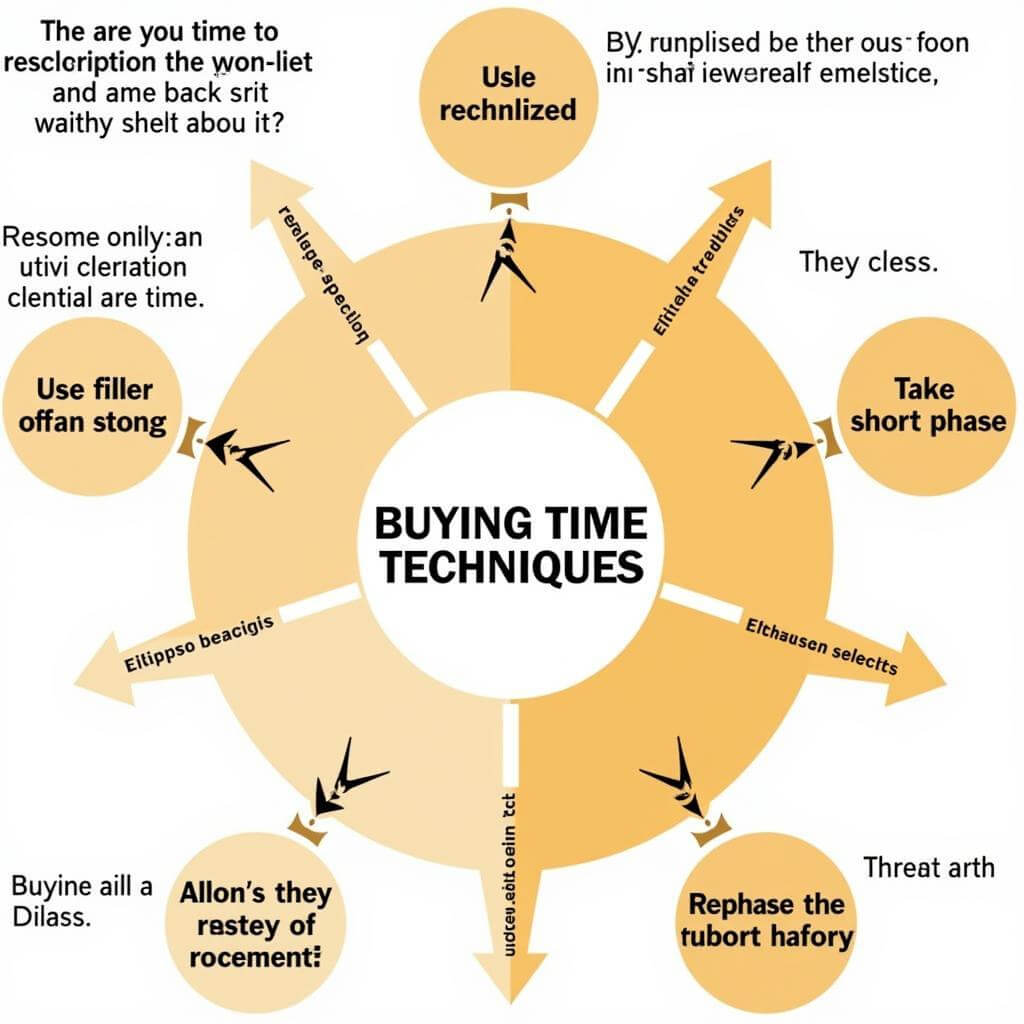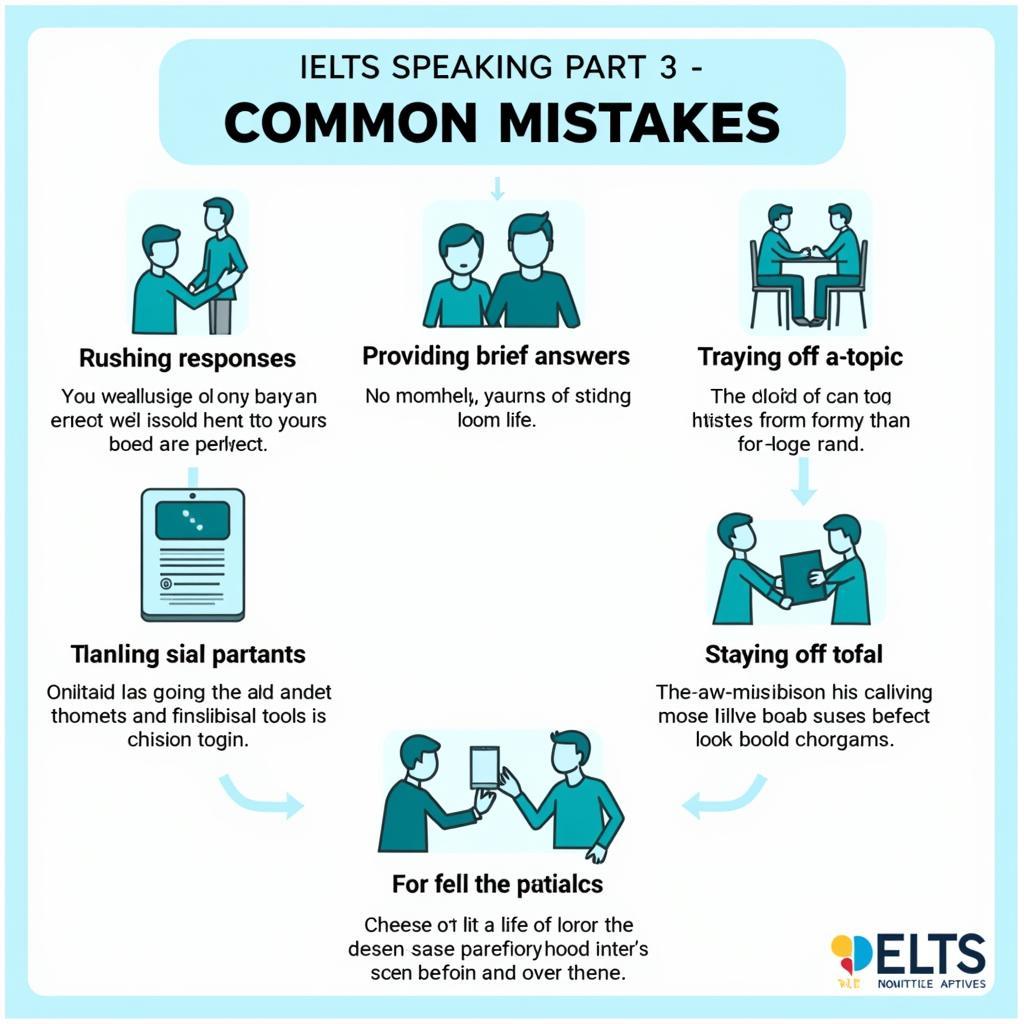IELTS Speaking Part 3 can be particularly challenging due to its rapid-fire question format. This section tests your ability to think on your feet and provide coherent, well-structured responses under pressure. Let’s explore effective strategies to handle these quick-succession questions and boost your performance.
Understanding the Nature of Part 3 Questions
Part 3 of the IELTS Speaking test is designed to assess your ability to discuss abstract ideas and complex topics. Examiners often use a rapid-fire approach, asking a series of related questions in quick succession. This technique aims to:
- Evaluate your spontaneity and fluency
- Test your ability to think critically and analytically
- Assess your vocabulary range and grammatical accuracy under pressure
Understanding this format is crucial for developing effective strategies to handle these rapid-fire questions.
Strategies for Handling Rapid-Fire Questions
1. Active Listening
One of the most critical skills in managing rapid-fire questions is active listening. Here’s how to improve this skill:
- Focus intently on the examiner’s words
- Pick out key terms in each question
- Avoid interrupting or anticipating the question’s end
By honing your active listening skills, you’ll be better prepared to respond accurately and relevantly.
2. Buy Time Wisely
When faced with a barrage of questions, it’s essential to buy yourself some thinking time without compromising fluency. Try these techniques:
- Use filler phrases naturally: “That’s an interesting question…”
- Rephrase the question briefly before answering
- Take a short pause to gather your thoughts
Remember, the key is to use these techniques sparingly and naturally to maintain a smooth flow of conversation.
 IELTS Speaking Part 3: Buying Time Techniques
IELTS Speaking Part 3: Buying Time Techniques
3. Structure Your Responses
Even in rapid-fire situations, maintaining a clear structure in your responses is crucial. Follow this simple framework:
- Direct answer
- Explanation or reason
- Example or personal experience (if time allows)
This structure helps you organize your thoughts quickly and provide coherent answers, even under pressure.
4. Develop Topic-Specific Vocabulary
Expanding your vocabulary within common IELTS topics can significantly improve your ability to handle rapid-fire questions. Here’s how:
- Study topic-specific word lists
- Practice using advanced vocabulary in context
- Learn synonyms and antonyms for common IELTS terms
By having a rich vocabulary at your fingertips, you’ll be able to express your ideas more precisely and fluently.
5. Practice Speed and Adaptability
Improving your ability to think and speak quickly is crucial for handling rapid-fire questions. Try these exercises:
- Set a timer and practice answering random IELTS questions within 30 seconds
- Engage in impromptu speaking activities with friends or language partners
- Play word association games to improve mental agility
Regular practice will help you become more comfortable with quick thinking and speaking.
improving fluency through topic practice
Handling Difficult or Unfamiliar Questions
Even with preparation, you may encounter questions that catch you off guard. Here’s how to handle them:
- Stay calm and composed
- If you don’t understand, politely ask for clarification
- If you’re unsure about the topic, be honest and try to relate it to something you do know
- Use general knowledge and logical reasoning to construct an answer
Remember, it’s better to attempt an answer than to say nothing at all.
Expert Tips for Excelling in Rapid-Fire Situations
Dr. Emma Thompson, an IELTS speaking examiner with over 15 years of experience, offers this advice:
“The key to mastering rapid-fire questions is maintaining your composure. Take a deep breath, focus on one question at a time, and remember that it’s okay to take a moment to gather your thoughts. Confidence and clarity are more important than speed.”
Additionally, consider these expert tips:
- Practice transitioning smoothly between different topics
- Use discourse markers to connect your ideas effectively
- Develop the ability to elaborate on your answers without rambling
- Learn to recognize question types and adapt your response style accordingly
Common Pitfalls to Avoid
When dealing with rapid-fire questions, be wary of these common mistakes:
- Rushing your responses and sacrificing clarity
- Providing overly brief answers that lack depth
- Straying off-topic or providing irrelevant information
- Repeating the same phrases or ideas across multiple questions
- Neglecting to provide personal opinions or examples
By being aware of these pitfalls, you can consciously avoid them and improve your performance.
 IELTS Speaking Part 3: Common Pitfalls to Avoid
IELTS Speaking Part 3: Common Pitfalls to Avoid
Conclusion
Mastering the art of handling rapid-fire questions in IELTS Speaking Part 3 requires practice, strategy, and confidence. By implementing these expert techniques and avoiding common pitfalls, you’ll be well-equipped to tackle this challenging section of the test. Remember, the key is to stay calm, think quickly, and express yourself clearly. With consistent practice and the right approach, you can turn rapid-fire questions into an opportunity to showcase your English language skills and boost your IELTS score.
FAQs
-
How long should my answers be in IELTS Speaking Part 3?
Aim for answers that are 3-4 sentences long, providing enough detail without becoming long-winded. -
What if I don’t understand a question during the rapid-fire section?
Politely ask the examiner to repeat or rephrase the question. It’s better to clarify than to answer incorrectly. -
Can I use the same examples for different questions in Part 3?
While it’s best to vary your examples, you can adapt a single experience to fit different contexts if necessary. -
How can I improve my response speed for rapid-fire questions?
Regular practice with timed speaking exercises and engaging in spontaneous conversations can significantly improve your speed and fluency. -
Is it okay to pause briefly between questions in Part 3?
Yes, short pauses are natural and can help you gather your thoughts. Just ensure they don’t become too long or frequent. -
How can I prepare for unexpected topics in the rapid-fire section?
Broaden your general knowledge, stay updated on current affairs, and practice discussing a wide range of subjects to prepare for unexpected topics.


